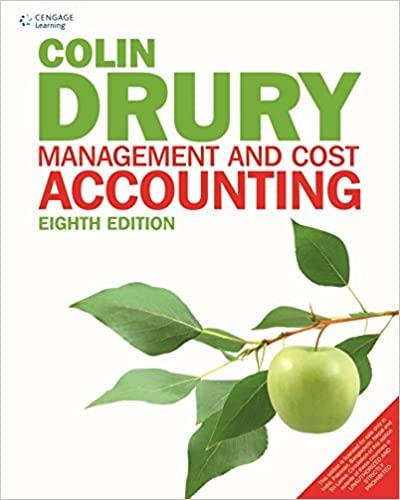In 1987, Johnson and Kaplan, published a text titled Relevance Lost: The Rise and Fall of Management
Question:
In 1987, Johnson and Kaplan, published a text titled Relevance Lost: The Rise and Fall of Management Accounting. In this text, they criticized traditional management accounting techniques as being inadequate for the modern business environment. They advocated more advanced and complex costing techniques, such as activity-based costing (ABC), as being more relevant to decision-making in the highly complex business environment being faced by firms.
However, a CIMA sponsored study of 41 UK manufacturing firms was conducted by Dugdale, Jones and Green (2006). The aim of the study was to examine the contemporary management accounting practices of manufacturing firms. The study found that 30 of the 41 firms participating employ standard costing, with the large majority (26) of these firms setting standard costs for materials and labour and a smaller majority (20) setting standard overhead costs also. Similarly, a 2009 CIMA survey of management accounting practices found that approximately 45 per cent (of 439 respondents) use standard costing. Thus, despite the misgivings of Johnson and Kaplan and a huge shift in the dynamics of the business environment since 1987 (e.g. online selling, advanced manufacturing technologies), it would seem standard costing is alive and well.
Questions
1 Why do you think standard costing remains a commonly used management accounting technique?
2 Do you think certain types of business are more suited to standard costing? Can you think of an example?
Step by Step Answer:






